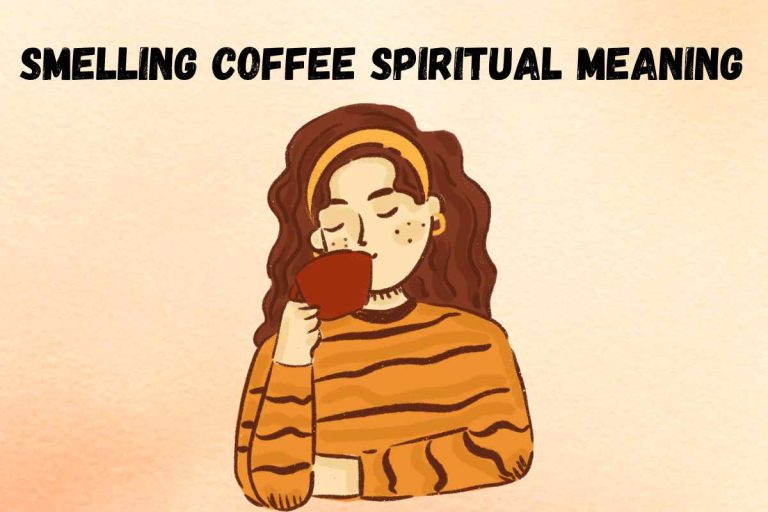Baby Born With A Full Head of Hair Spiritual Meaning & Superstition

Every parent marvels at the unique aspects of their newborn baby, but when a baby is born with a full head of hair, it often sparks curiosity and wonder. While some see it as a charming physical characteristic, others delve into the spiritual meanings and superstitions associated with this phenomenon.
In this post, we’ll explore whether babies can indeed be born with a full head of hair, the medical reasons behind it, spiritual meanings, cultural beliefs, biblical meanings, and whether it’s seen as good or bad luck.

Key Takeaways
Can Babies Be Born With A Full Head of Hair?
Yes, babies can indeed be born with a full head of hair. It’s not as uncommon as you might think. In fact, it’s estimated that about 20-30% of newborns come into the world with a significant amount of hair. While it’s a source of endless fascination for new parents, it tends to draw significant interest from those who are spiritually inclined or superstitious.
Traditionally, some cultures believe that a baby born with a full head of hair is a sign of good luck or future prosperity. Others might attribute various meanings or omens to this feature, adding to the wonder and curiosity surrounding these little bundles of joy.
Why Are Some Babies Born With a Lot of Hair?
From a medical perspective, the presence of a full head of hair at birth is typically attributed to genetics and parental traits. During fetal development, hair follicles start to form around the fifth month of pregnancy, marking an important milestone in the baby’s growth.
The hair that a baby is born with is known as lanugo, which usually sheds before birth but can sometimes persist till the time of delivery. Lanugo serves as a protective layer for the baby’s skin while in the womb.
Hormonal levels in both the mother and baby, as well as ethnicity, can also play a significant role in how much hair the baby has at birth. For example, certain ethnic backgrounds are more likely to have babies born with a full head of hair.
Environmental factors and maternal nutrition during pregnancy can also influence the amount and quality of the baby’s hair. Therefore, a combination of genetics, hormonal influences, and external factors all contribute to the baby’s hair development.
Spiritual Meanings of Babies Having a Full Head of Hair
In many cultures, a baby born with a full head of hair is believed to carry spiritual significance. Here are spiritual meanings often associated with this phenomenon:
1. Old Soul
Some believe that a baby with a full head of hair is an old soul who has lived multiple lives and carries wisdom from past incarnations. This belief is rooted in various cultural and spiritual traditions that suggest such babies have a deep, inherent understanding of the world.
According to these traditions, the hair symbolizes the accumulated knowledge and experiences from previous lives, making the baby more attuned to the mysteries of existence.
2. Strength and Vitality
Hair is often seen as a symbol of strength and vitality, representing not just physical health but also an individual’s life energy and vigor. Thus, a baby born with a full head of hair is thought to have robust health and an abundant life force.
This perception can be found in many cultures around the world, where thick, healthy hair is associated with good genes, well-being, and a promising future. Parents often take pride in their newborn’s lush hair, believing it to be an auspicious sign of their child’s potential for growth and resilience.
3. Divine Favor
In various traditions around the world, it’s believed that babies born with a full head of hair are blessed by divine forces, making them special or chosen in some way. These babies are often thought to possess unique qualities or a special destiny.
In some cultures, a full head of hair at birth is seen as a sign of good fortune and prosperity, and parents may receive numerous blessings and congratulations from their community. This belief underscores the profound importance placed on hair as a symbol of vitality and strength.
4. Protection
Some spiritualists argue that the hair acts as a protective shield, guarding the baby against negative energies or evil spirits. They believe that the hair can absorb and repel harmful influences, ensuring the infant remains safe and secure.
This practice is often rooted in ancient traditions and cultural beliefs, passed down through generations, emphasizing the significance of maintaining a child’s spiritual well-being.
5. Intuition
There’s a belief that the newborns with a full head of hair possess heightened intuition and spiritual sensitivity, allowing them to connect more easily with the spiritual realm. This belief is rooted in various cultural traditions and folklore, where such babies are often regarded as special or gifted.
Parents and elders might observe these children closely, seeking signs of their unique abilities or heightened awareness. Whether or not one subscribes to these views, the idea that hair can signal deeper connections adds a fascinating layer to the wonder of new life.
6. Fortune
In certain cultures, a full head of hair at birth is seen as a sign of future prosperity and good fortune. This belief often leads families to view the newborn as a harbinger of success and wealth, celebrating the child with special ceremonies and traditions that honor their perceived auspicious beginning. The child’s hair is sometimes kept intact for a period, symbolizing the hope for a bright and prosperous future.
7. Unique Soul Mission
Some spiritual seekers believe that these babies born with a lot of hair are destined for a specific, often significant, mission to fulfill in this lifetime. They suggest that the abundant hair symbolizes a strong connection to spiritual realms or a heightened sense of purpose.
According to these traditions, such children are thought to possess unique qualities or spiritual gifts that set them apart from others. This belief adds a layer of mysticism and wonder to the already miraculous event of a new life entering the world.
For parents who embrace this perspective, the arrival of their hirsute newborn might be seen not just as a joyous occasion but also as a sign of a deeper, spiritual journey ahead.
8. Mystical Powers
In rare cases, it’s believed that babies born with a lot of hair might possess mystical or supernatural abilities due to their strong spiritual connections. This belief stems from ancient folklore and various cultural myths, where such children are often seen as having a special destiny or unique gifts.
These stories highlight the deep-rooted fascination and reverence for the unexplained and the spiritual world. For instance, in some cultures, a child with a full head of hair at birth is thought to be a reincarnated sage or someone who has retained wisdom and powers from a previous life.
This belief often leads to the child being treated with great respect and care, as they are considered to hold the key to understanding deeper spiritual truths. Such narratives demonstrate how human societies have always sought to find meaning in the extraordinary, weaving intricate tales that connect the physical with the metaphysical.
Myths, Superstitions, and Cultural Beliefs
From folklore to modern myths, the cultural beliefs associated with babies born with a full head of hair vary widely:
1. Chinese Culture
In Chinese culture, it’s believed that a baby born with a lot of hair will bring wealth and prosperity to the family. This belief is rooted in the idea that thick hair symbolizes strength and vitality, which are seen as indicators of a prosperous future. Families often take great pride in this sign, viewing it as an auspicious start to the child’s life.
2. African Traditions
Some African societies view a full head of hair as a sign of strong ancestral blessings and protection. In some communities, a newborn with hair is seen as carrying the blessings of ancestors, making them extra special.
3. American Folklore
According to American folklore, babies born with a full head of hair are thought to be smarter and more intelligent than those with little or no hair. Some even say that these babies have an easier time learning new things and excel in academics as they grow up.
4. Mexican Beliefs
In Mexican culture, it’s believed that if a baby is born with hair on their forehead (referred to as ‘hair horns’), they will possess magical powers such as clairvoyance or healing abilities. This belief has been passed down for generations and continues to hold significance in modern times.
Is There Any Biblical Meaning?
While the Bible doesn’t directly mention babies being born with a full head of hair, hair, in general, has significant symbolism in Christian texts. For example, Samson’s strength was believed to be in his hair, and when Delilah cut it, he lost his power.
Hair can symbolize strength, vitality, and divine favor throughout various biblical stories. Thus, a full head of hair on a newborn might be seen as a symbol of divine strength and blessing, indicating that the child is endowed with special qualities or protection from above.
This symbolism resonates with the broader theme of God’s involvement in the intimate details of human life, even down to the number of hairs on one’s head, as mentioned in the New Testament.
Baby Born with a Full Head of Hair: Good Luck or Bad Luck?
The interpretation of a baby born with a full head of hair can vary widely across different cultures and belief systems. Generally, it is seen as a positive omen. Most cultures and spiritual beliefs consider it to be a sign of good luck, prosperity, and divine favor. This phenomenon is often celebrated and admired, with people believing that the child will have a prosperous and fortunate life ahead.
However, some superstitions might view it as foretelling certain challenges or unique life paths, suggesting that a child with such a distinctive feature might face unusual circumstances or have an extraordinary journey.
In some traditions, specific rituals or customs might be performed to enhance the positive aspects and mitigate any perceived negative implications.
Should We Cut the Baby’s Hair?
Deciding whether to cut a baby’s hair is often influenced by cultural or religious beliefs. In some traditions, cutting a baby’s hair is seen as removing bad luck or negative energy, while in others, it’s a rite of passage or a way to honor the child’s growth.
For instance, in Hindu culture, the first haircut, known as Mundan, is believed to purify the child and promote healthy hair growth. Similarly, in some Jewish communities, the Upsherin ceremony marks a boy’s first haircut at the age of three as a significant milestone.
Medically, there’s no harm in cutting a baby’s hair if done carefully, ensuring the child is calm and using the appropriate tools to avoid any accidents. Pediatricians often recommend using blunt scissors or electric trimmers designed for children.
How to Care for Your Baby’s Hair
Babies’ hair growth patterns vary; some may grow hair quickly, while others take longer. Avoid comparing your child’s hair growth to others, as each baby is unique.
Here are some tips for caring for your baby’s hair:
Final Words
A baby born with a full head of hair is more than just a delightful surprise for new parents; it’s a phenomenon rich with spiritual meaning, cultural beliefs, and superstitions. Whether you view it through the lens of spirituality, cultural traditions, or simply as a unique trait, it’s clear that these babies bring a sense of wonder and fascination.
Embrace the journey of parenthood, relish the unique traits your baby brings, and remember that the meanings we ascribe to these characteristics often stem from deeper, time-honored beliefs that connect us all.
Whether you are a new parent marveling at your child’s lush locks or a spiritual seeker pondering its deeper significance, one thing is certain: a baby born with a full head of hair is nothing short of a miracle.
You Might Also Like
1) 9 Spiritual Meanings of Veiled or En Caul Birth & Superstitions
2) 8 Spiritual Meaning of Umbilical Cord Around Neck in Baby
3) 8 Spiritual Meanings of True Knot In Umbilical Cord & Superstitions
4) 8 Spiritual Meanings of Third Nipple, Powers & Mythology
5) 9 Spiritual Meanings of Waking up at 6 AM









